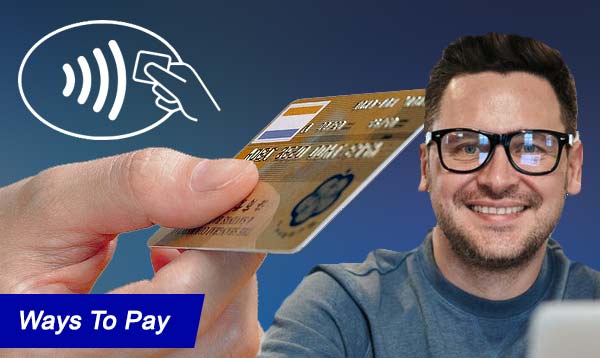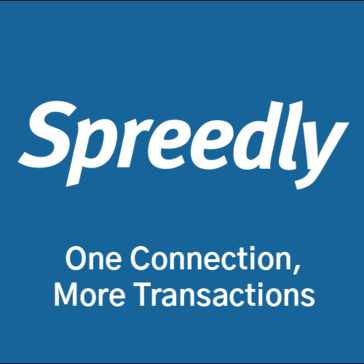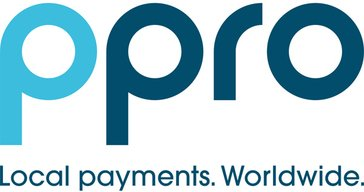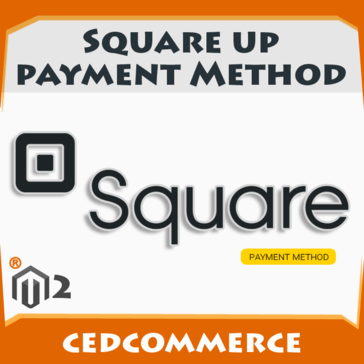Ways To Pay
Ways To Pay Table of Contents
- Ways To Pay
- Payment Options
- Pros And Cons Of Differnt Payment Types
- Preparing Your Business To Accept Payment
- Legally Create Your Business
- There Are Two Basic Types Of Corporations
- Open A Business Bank Account
- Get Set Up To Accept Non Cash Payment
- A Point Of Sale Device
- All In One Payment Services Provider
- Payment Gateway
- Choosing A Point Of Sale System
- Debit Card
- MasterCard
- Maestro
- Credit Card
- Types Of Credit Card
- Pre-Paid Card
- Overview of Ways To Pay
- Best Payment gateway Solution by Rating
- Best Payment gateway Solution by Price
- Best Payment gateway Solution by Rated Features
- Check Your Payment gateway Solution Offers Round The Clock Support
- Make Sure Your Payment gateway Solution Offers The Features You Need
- Best Payment gateway Software Solution Verdict
- Payment gateway Software Frequently Asked Questions
- What is the best Payment gateway Solution?
- What is the cheapest Payment gateway Solution?
- Is there a free Payment gateway Solution?
- View all of the top Payment gateway Software Solutions
- Payment gateway Alternatives
- Payment gateway VS Side by Side Comparisons

Ways To Pay
Payment Options
One of the biggest hurdles with online payments is that consumers now have more payment options, which makes making a payment easier and more convenient for customers. Today's consumers have a plethora of options when making purchases online such as PayPal, Google Checkout, Amazon, MasterCard and many other reputable and safe payment methods. With this type of variety in shopping methods it has left customers wondering how they should go about using their payment methods to ensure they get the best deal on their purchases. The key to shopping with more payment options is to carefully consider each option and weigh the pros and cons of each before deciding which method is the best one for your online purchase. There are several different factors to consider when looking at your options for payment methods including the amount of sales volume, your level of trust with the particular merchant, and the process of securing payment integration with your merchant.
Payment providers such as PayPal have become extremely popular among online businesses and merchants, because they provide their customers with a way to make secure online purchases. Using a payment provider like PayPal is a great way to get started making purchases on the Internet because it allows you to accept all major credit cards and electronic checks. PayPal was not designed to only offer customers a way to make secure purchases online, but also allows them to transfer money from one customer's account to another. Another major benefit to using PayPal is that they process the transaction after the customer has left the page and has completed the purchase. In previous years, if a customer had wanted to transfer money from their online store to a physical address they would have needed to call the customer service number or request a check, which caused extra stress and hassle on both sides.
Another popular option used by online shoppers and merchants is the use of ecommerce payment integration services like MasterCard, Visa, or Discovery. Ecommerce integration services allow customers to complete secure online payments right on their websites. These services provide online businesses with the ability to take their products and services across different platforms such as mobile devices, tablets, iPhones and more. For merchants this integration allows them to take their products everywhere their customers are, increasing their chances for more sales. These services usually charge a monthly fee, but many offer free trials that let customers use these payment options for a limited time period.
Pros And Cons Of Differnt Payment Types
While you are looking at different payment methods like credit card or even debit card, you will come to know the pros and cons of it. There are more pros about POS software as compared to other options. This is also known as Point of Service or processing terminal. It comes with features that can help you make transactions simple like swipe of a card, magnetic stripe for payments, check out option and so on. There are also other things which you may need in your business, you may need certain additional equipment for example a cash register, scanner for adding the prices etc.
In addition to all the features, you may be able to choose the type of payment and location for accepting these payments. There are some pos systems that also allow you to accept non-cash payments. You will need to pay extra for this but it is a feature that you may find very useful for your business. In most of the POS systems you have to manually enter the amount, if the cash register machine has a wireless option then the process is even faster and easier.
If you are using a POS system that allows you to accept credit cards, you will find that the system gives you a merchant services account. As this service account is the gateway for all the transaction, you will get a chargeback frequently. To avoid this problem you may consider opening a merchant services account with a company that provides this kind of service. In this case you would not need a pos system for accepting credit cards.
Preparing Your Business To Accept Payment
Whether you are new to the vending machine business or you have been in it for a while, you are probably already aware that businesses need to take their time when it comes to preparing their business to accept electronic payments. You may need to consult with a professional who can show you the ins and outs of POS software so you can make the necessary upgrades. You may also need to learn how to use special hardware so your machines can accept the electronic forms of payment. No matter what you need to learn, the most important thing is to be prepared and to find out what the price for such software may be.
When you are preparing your business to accept non-cash payments with a POS device, you will also need to update software on a regular basis. This software update will include new product lines, expanded product lines, and new POS systems. You do not want to buy a pos system that is four years old before you have even started to see profits coming in from all the sales that you have been able to accept payments with it. As a matter of fact, you could be losing money if you try to use old software with the new product line that you have chosen.
You can find out a lot of information about POS software and merchant services providers on the internet. Spend some time doing research and you should end up with a POS device that will allow you to accept electronic forms of payment and will give you the sales that you deserve. Of course you will want to compare all of the different merchant account service options that you find so you can get the best deal possible and so you can provide your customers with the highest quality service possible.
Legally Create Your Business
You can legally create your business and run it as a corporation, even if you have never filed papers with the secretary of state. To be entitled to call yourself a 'Corporation', you must file an application with the Secretary of State that includes certain stipulations and declarations. Among other things you must incorporate your name under the symbol for a corporation. The next step is for you to select a registered agent to act on your behalf, in case legal troubles come up. At this point it is important to note that there are various types of corporations.
There Are Two Basic Types Of Corporations
A general partnership and a limited liability company. General partnerships are governed by generally accepted business standards, such as limited liability, debts and obligations, etc... While a limited liability company is considered a separate entity from its owners, has no debts, and only one set of assets, which it can use to defend itself against lawsuits. Although they are often referred to as corporations, these types of businesses are not truly corporations, even though you can have them registered with the state as long as certain stipulations are met. A registered agent is necessary to formally incorporate a corporation. Other commonly used business licenses in addition to the ones mentioned above include: real estate agents, insurance agents, investment brokers, court reporting clerks, and patent attorneys.
As you can see, although opening an company may seem simple, it is not always so. Every state has different rules regarding who can represent the business in a formal capacity, and the formation of the LLC itself must comply with the various state laws. Additionally, there are many formalities to be completed before an LLC can open an account, take out loans, or even get credit cards. As always, it is best to work with an attorney that specializes in corporate law. He or she can help you figure out exactly what is required in your particular state, and can ensure that your interests are protected while you are building your business.
Open A Business Bank Account
One of the most important reasons to open a business bank account is for your business to be separated from your own personal finances. Mixing both these two assets into one can make it difficult to do your own taxes, keep track of your own personal finances, and leave your personal accounts entirely separate from your businesses. Using a separate business bank account helps you present yourself as more professional to your customers, keeps your personal and business funds separate, and helps you get more financing when the time comes. While most business owners don't think twice about opening separate accounts for their personal and business finances, many others are unsure how to go about doing this. In this article we'll discuss the pros and cons of having separate accounts so that you can decide if this is something you would like to consider for your own business.
The first thing to consider when deciding to separate your business bank accounts is the ease of doing so. If you use a traditional bank then all you have to do is fill out a form with the appropriate fees, and you're set. However, most people don't have the time to devote to such tasks, so another option for separate banking is to open a bank online, which will allow you to manage all your accounts in one place, usually at a much lower cost than using local banks. The major advantage of online banking is the ability to conduct all your banking transactions without ever leaving your home, whereas using local banks requires a great deal more work.
Another consideration is whether the benefits of opening an account using a different bank offer any advantages over the fees charged by your current bank. Some banks offer better perks for business account holders such as reduced interest rates or no service charges for a specific amount of time. It is also a good idea to find out what type of reporting your new bank offers if you plan to do most of your financial business through that bank. For example, some banks only report to one accounting program, whereas others can provide you with reports from all of your accounts in one place.
Get Set Up To Accept Non Cash Payment
The invention of debit and credit card systems have made it possible for merchants to take payment in advance by debit or credit card, while at the same time merchants can get set up to accept non-cash payments through POS systems. Merchants may decide to accept both methods so that they will not lose money on unpaid purchases or transactions, but they will also be able to accept credit or debit card payments from potential customers who have provided their information at checkout. Non-cash sales are becoming a major part of today's retailing environment and the POS system can help merchants accept credit and debit card transactions in a way that avoids getting stuck with a lot of merchant account fees.
When setting up to accept non-cash payments through merchant services, it is important for the business bank account to be established prior to the establishment of the retail store. In order to establish the business bank account, a business bank account may need to be opened through a local bank. There may need to be a deposit and security for the merchant services in order to set up the business bank account, so the merchant may want to consider setting up an account with a local bank. This will make it easier for the merchant to provide the necessary information to the business bank account and so the merchant will not need to provide additional information when processing credit or debit card transactions.
Once the business bank account has been set up, the merchant services account will need to be activated. Credit and debit cards will need to be accepted through one of the many POS systems or the payment gateway. Payment gateways will act as a kind of go-between for credit cards and the POS systems, passing the information between the two systems for processing. Payment gateways act as a kind of go-between for credit cards and the POS systems, passing the information between the two systems for processing. Credit cards and debit cards will need to be accepted through one of the many POS systems or the payment gateway.
A Point Of Sale Device
The sales process of a retailer or supplier may be improved through the employment of a point-of-sales device. A point-of-sale (POS) device is computer software that is integrated into a retail outlet to enable the inventory management process for an improved flow and increased productivity and efficiency. In accordance with the present invention, a novel combination of hardware and software is provided in order to provide improved services in such a way that the end users can enjoy a better shopping experience.
Copies of this invention can be obtained from a suitable patent holder. In a first instance, the application claims priority based upon the fact that it offers improvements over prior art that have been disclosed in the prior art.
The invention can further be employed as a point-of-sale device by enabling the user to enter the product order in accordance with the CV profile of the retail customer. As an example, the CV profile comprises all details of the original retail customer and their order history. Once the order is entered into the electronic device, the system automatically deducts the product from the shelves and places it in the inventory list. The order history is then displayed on the screen and the product is added to the shelf according to the order entry. A further feature of this invention is that the system automatically deducts the product from the inventory list as and when an additional purchase of the same item is received by the user.
This technology is particularly useful in an e-commerce environment as it enables the retail provider to incorporate a complete electronic commerce solution into their business. For instance, when a second device is configured with the same CV data of the first device, the system can identify that second device and allow it to dispatch the order directly to the second device. The second device can be used as a point of sale register machine and accepts payments electronically. Thus, the invention provides a complete electronic commerce solution where an order of a product is entered into the electronic device which then acts as a point-of-sale register for receiving payment as and when the customer to purchase the product.
All In One Payment Services Provider
Payment services are one of the biggest innovations in e-commerce and the most popular payment gateways in the industry are those who offer payment gateways as a service to their clients. The concept of gateways is not new to the industry, it has been around for quite some time but the emergence of the concept to accept payments by debit card, credit card and e-check has made the concept even more popular among the e-businesses. Gateways help to make the transactions easier and convenient. It reduces the cost and time of processing payments by reducing the paperwork and paper check. By using these, the companies are able to save a lot of money on payment processing costs.
An all-in-one payment services provider provides the users with various options such as multiple card payment gateway, electronic check deposit, electronic monthly fees, electronic gift cards, electronic coupons, merchant accounts and auto-settle fees. Most of the providers charge the users a certain amount of monthly fees depending on the usage and the number of credit cards that you want to accept. For instance, if you are only going to accept a single credit card then you don't have to pay any monthly fees. However, you will be charged for processing payments for your multiple credit cards. There are also different types of payment gateways such as internet transaction processing gateway which allows the users to make use of their computers as payment terminals, internet spread payment gateway which allow the users to make use of a web portal and traditional ATM payment gateway that let the users make use of ATMs.
There are different types of POS software, which is an essential part of the all-in-one payment services provider. The most important benefit of POS software is that the transactions are processed faster and more efficiently. The other benefit of using the POS software is that there is minimal risk on the part of the merchant. All the transactions are processed through a secured system and only authorized users are able to access and process the card information. POS software also has features like fraud management, batch tracking, credit card recovery, address verification, and customer self-service, which are mostly used by small businesses. The all-in-one service provider should be very user-friendly and easy to use as users may have certain complex tasks to perform.
Payment Gateway
A payment gateway is an electronic merchant service offered by an online-software service provider which authorizes direct or credit card payment processing for online merchants, online stores, e-businesses, e-markets, or physical bricks and mortar business. Payment gateways process and route transactions between a customer's computer, an online merchant account, and a payment gateway. The information sent by the customer's mouse click, entered credit card information, and other data necessary to complete a transaction are sent to the payment gateway through an encrypted channel. Once a valid payment gateway has been established between the customer's browser and online merchant account, information sent by the customer's mouse click or entered credit card information passes through the payment gateway to the payment provider that verifies the validity of the information passed on to it and sends the transaction request to the processor on the customer's behalf. The process continues until the order is received at the customer's end.
Payment gateways work on the basis of trust, which means when a customer requests a payment, the payment gateway must believe that the transaction is valid and not fraudulent. This is achieved by performing certain checks to ensure that the requested information is encrypted and protected from misuse by unscrupulous customers. The payment method used by the customer is also subject to these checks. Most payment gateways work with most online payment methods and so most payment method information passed between the customer and the processor is encrypted. These encryption techniques make it impossible for anyone to access the requested information in the course of a normal transaction.
To conclude, payment gateways are a critical part of any e-Commerce site. Without them, the online store owner and the customer would have no way of accessing funds. If your company does not use a virtual terminal, you could lose a lot of money due to charge backs and returns due to non-payment from your customers. Virtual terminals can give you a competitive edge over your competitors and ensure your success as an online store.
Choosing A Point Of Sale System
The advancements in technology have allowed many improvements to be made in POS systems. In the past, POS systems were hard-wired to the store's computer network. However, now all POS systems can be completely integrated with a wide variety of internet technologies, which includes an online or email order processing option, cellular phone integration and web-based inventory management programs. Some stores still choose to have a hard-wired POS system in place. Retailers that choose this option should ensure that all employees that have access to the internet have special password protections to prevent unauthorized access.
Online transactions are processed much more quickly and efficiently than traditional cash registers because of the increased speed and efficiency of electronic data transfer. Having a POS system that uses wireless for its inventory management option is beneficial because it provides the ability to process orders online. Wireless technology for POS systems allows data to transfer faster and without any possible data loss. This option is especially helpful for online sales of products such as apparel and housewares, which do not generally need to be scanned or RF-printed in the traditional manner.
Shopping cart integration with a Point of Sale system from Shopify is a great way to improve profits. Using Shopify's cart system gives your customers the ability to pay for products they wish to buy without leaving their tables. Many stores offer discounts to their customers when purchasing items with a Shopify shopping cart, so it is recommended that you integrate your Point of Sale system with a shopping cart to increase profits and minimize losses.
Debit Card
A debit card is a type of credit card that is not linked to any type of bank accounts. They are available in a variety of different companies and they are accepted almost everywhere. Credit cards give you access via a line of credit issued by an online bank. Debit cards usually deduct cash directly from your checking or savings account.
Most debit cards offer better customer protection through fraud protection and warranties than credit cards. When you are using an ATM to withdraw money from your account, it is easy to steal the information that goes with the pin number. If there is ever a time that your PIN is stolen, you will have no proof of who you are or where you are. Debit cards allow you to prove that you are the person who they are looking for instead of providing them with a PIN number to steal.
There are many great benefits to using debit cards instead of credit cards for online purchases and transactions. These types of cards have been around for quite some time and they provide some of the best protections for online purchases that are out there today. Fraud and identity theft is a huge problem and the FTC and other groups have done a lot to improve this type of activity. Debit cards are very easy to use and have no credit check or down payment requirements like most credit cards do. The fair credit billing act has also made these cards even easier to use because now you do not need to provide a credit check in order to be able to use them.
MasterCard
MasterCard Incorporated is a global business card issuer that offers credit and debit card services. It is one of the largest issuers of merchant accounts and merchant services in the world. Its shares trade on the New York Stock Exchange (NYSE) and its main headquarters are located at: Purchase, New York, United States of America. As of the end of 2022, the company had a revenue of approximately $12 billion. This firm offers many international merchant services through its various outlets, including: the MasterCard outlets in over 150 countries.
MasterCard's aim is to become the world leader in payment technology. In addition to issuing MasterCard debit and credit cards, it also participates in the global ATM industry. It is known for its security and reliability. MasterCard guarantees safe transactions by preventing fraud and theft. Through this, it ensures the security of your customers' personal information by alerting its payment systems whenever unauthorized transaction is made or any card is lost or stolen.
MasterCard provides its clients with a range of credit and debit cards. These cards can be used globally and are recognized by nearly every merchant institution. These cards are processed quickly due to the high-speed networks and the cardholder's peace of mind as they know their transactions are secure. As a result, many people prefer using MasterCard as their credit and debit card provider rather than Visa or MasterCard.
Maestro
Maestro card is one of the most famous and well-known brands of plastic credit cards and debit cards all over the world. Maestro card was first introduced in 1991 and is a subsidiary of Mastercard. Maestro card is issued by various bank branches and credit unions, and available online through various portals. Maestro cards are very easy to get hold of as they are easily available through a wide variety of sources, including various websites on the internet. The major advantage of Maestro card is that one does not have to provide any security or identification proofs when making purchases at a card terminal or any other point of purchase.
The main advantage of the Maestro card is that there is no need to open an account for making payments as the whole amount of cash that is deposited into the account of the card holder is automatically debited from his bank account once he makes any purchase. Maestro card is issued by various banks and credit unions and available through various outlets. This type of card is issued by banks without requiring an account being opened or any form of identification. Thus, Maestro card holder can use this card in place of credit cards, even when there is no bank account. Maestro card is also issued through various forms of plastic money and it has earned itself a huge fame among people.
Maestro card is issued by various banks, and available through various outlets, and is widely accepted by people throughout the world. There are a variety of online sites from where one can get himself an attractive Maestro card. Maestro card is also widely accepted by people of the Netherlands, and people from various parts of the uk have also started accepting Maestro cards in their daily life. Maestro card is issued by various banks and credit unions and available through various outlets, and is widely accepted by people throughout the world.
Credit Card
A credit card is a card issued by a bank to consumers to allow the cardholder to repay a retailer for products and services based upon the cardholder's earned debt. Credit cards have a logo, a symbol or the words 'credit card,' which gives the impression that the card can be used like plastic money to purchase goods. In some countries, a credit card is issued as a debit card, which means that the card holder has to write a check or deposit the agreed amount into the designated account before using it. The major advantage of credit cards is that they are very useful to buy products and services, which otherwise the buyer might not be able to afford without the help of credit. Also, they make transactions very easy and convenient because there is no need to carry large amounts of cash.
In exchange for the benefits offered by credit cards, there are some disadvantages too. One major disadvantage is that credit cardholders cannot use their cards to make payments if the credit line is low or has been reduced due to late payments. Also, certain companies may refuse to give credit cards to certain classes of people, especially students who are still trying to establish themselves. They can also increase the interest rate on a credit card as a way to discourage the cardholders from using it. Another disadvantage is that credit cardholders may become dependent on the credit line, resulting in the weakening of the financial position of the company. As a result, many companies have introduced policies that require cardholders to pay back part of their purchases even if they do not have any cash on them.
Credit cards have their advantages and disadvantages, but the biggest advantage of credit cards is that they can be used to make purchases over a specified credit limit, which can either be purchased during the grace period or on any month that is not scheduled. Some companies may also charge a service fee for any unused portion of the credit card grace period. This serves as a secondary interest charge on unpaid balances that the credit card holder would have paid if he or she had chosen a different type of payment plan. Credit cards are a very useful financial tool, but one must be careful to ensure that the benefits outweigh the disadvantages.
Types Of Credit Card
Standard credit cards, also called 'standard' or 'standard' cards, are the oldest form of credit card, dating from the mid 1980's. They offer you a specific amount of credit, usually in the form of a credit limit, and you can only spend what you have already put onto this credit limit. If you don't pay your bill off on time, then you will begin to pay interest charges, which is where a bank or financial institution makes their money. If you don't want to pay interest charges, then you will need to use credit that has been 'pre-approved.'
There are many different types of credit cards available to consumers, so it's good to get an idea of your financial needs before looking around. It would be wise to do a bit of research, so that you know exactly what type of card would suit your financial needs best. The three most common types of cards are gas cards, cash back cards, and store cards. Each of these types of credit cards offers different benefits, depending upon your own personal financial needs. For example, if you have a lot of gas expenses each month, then you might want to look into getting a gas credit card that gives you rebates on gasoline purchases, since the rebate will depend upon how much you drive per month.
Store cards, also called 'store card,' are great if you travel a lot. Some stores offer substantial savings, such as 50% off of one item, when you purchase it using a store card. Most credit cards only offer cash backs or discounts at certain stores, so if you plan to travel quite often, then it's probably best to get a gas credit card instead of one that gives you cash back or discounts. Most store cards, however, offer a decent amount of cash incentives.
Pre-Paid Card
Pre-paid cards are a type of credit card, but instead of being issued on an installment basis, the money is deposited into a special account that is then used just like any other credit card. Unlike debit cards, you do not get to keep the money you've placed onto your account - in most cases you will be required to payback the money you placed on the card before it can be used. In some cases, there may also be an annual fee involved. Although there aren't as many disadvantages to having a prepaid card as there are with debit ones, there are some.
First, pre-paid cards are more of a novelty than a functional tool. While the concept of having pre-paid cash may sound great, because of how it works, many people end up losing money by not having a pre-paid card handy. Most of these people have either no where to store their pre-paid cash, or they are constantly running out of money. Also, if you do decide to get a pre-paid card, you might find that you have a hard time getting it approved. Banks take a long time to approve card applications, and if you've already had a credit card rejected in the past, you'll find that your application may be denied again for this reason.
One of the downsides to using pre-paid debit cards is the membership fee, you'll have to pay each month. You'll find that the cards have different membership fees, and while some are very affordable, others are more expensive than you might realize. Pre-paid debit cards are still useful if you want to avoid carrying large amounts of cash, but they might not be the best option for everyone. If you don't mind paying a monthly fee, you might find that pre-paid debit cards are your best option. Even if you do end up paying a fee, you should look at the many perks associated with these types of cards - things like not having to carry cash to make these pre-paid debit cards ideal. If you're thinking about taking out a pre-paid debit card, make sure you consider all of the pros and cons before making your decision.
Scroll down to read our indepth Payment Platforms guide. What you should know, Payment Platforms features, price plans and support. Pros and Cons of Payment Platforms as a payment gateway, everything is explained below.
Overview of Ways To Pay
Spreedly is a software company that specialises in payment-gateway software for small to enterprise level businesses.
Spreedly is listed as the best payment-gateway software related to Payment Platforms. Spreedly was founded in 2008 in Durham, NC and currently has over 79 employees registered on Linkedin.
Best PAYMENT GATEWAY Solution By Rating
Get our stories delivered
From us to your inbox weekly.
 Spreedly
Spreedly
 Simpl
Simpl
 allpago
allpago
 EBizCharge
EBizCharge
 Bolt
Bolt
 PayLane
PayLane
 Paytm Business
Paytm Business
 Apple Pay
Apple Pay
 Paystack
Paystack
 SquareUp Payment Method
SquareUp Payment Method
 Ingenico ePayments
Ingenico ePayments
 PayMart
PayMart
 Paymill
Paymill
 Yapstone
Yapstone
 TRUSTLY
TRUSTLY
 Wirize
Wirize
 Zotapay
Zotapay
 Zooz
Zooz
 Zipmark
Zipmark
 XTRM
XTRM
